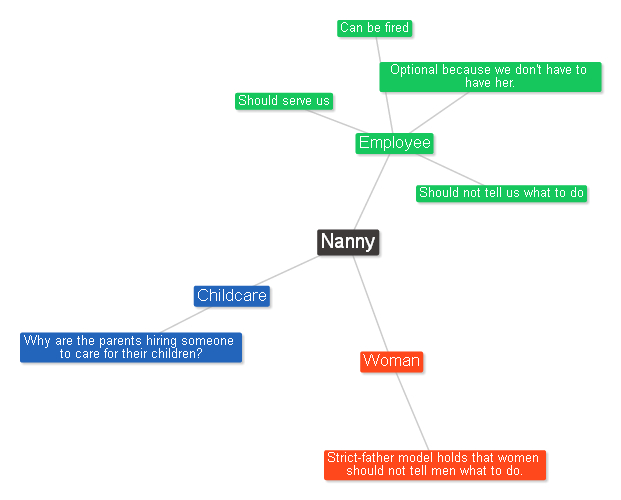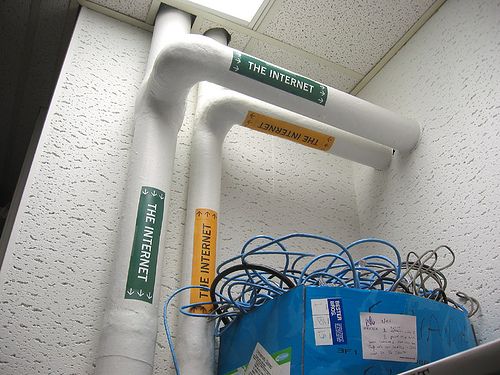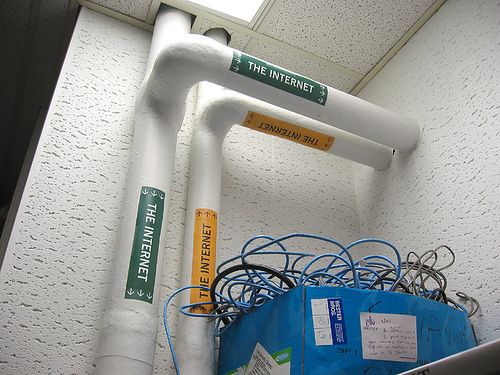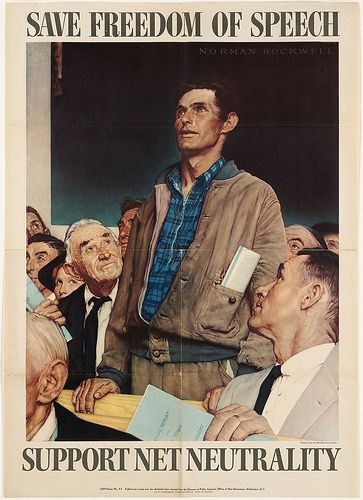A common way to disparage the government’s constitutional efforts to “promote the general Welfare” is to call it the nanny state. Like tax relief, this two-word phrase packs a punch, and Framologists should avoid and reframe it.

Connotations of the nanny metaphor include:
- Because nannies care for children, if the government is behaving like a nanny, it is inappropriately treating us like children.
- Nannies are employees, so who is the boss? If We the People are the boss, we should be telling the government what to do, not the other way around.
- Nannies are optional. They can be fired. Parents can care for their own children or hire a different nanny. If the government is like a nanny, do we need it at all?
- Nannies are usually women, and in the patriarchal strict-father model, women are supposed to support their men, not tell them what to do.
So this two-word phrase brings to mind several tenets of the strict-father view of government. Consider reframing the “nanny state” as one of the following:
- A strong, caring state
- A reponsible state
- A protective state
According to George Lakoff, empathy and responsbility are the core progressive values, and speaking of government this way brings these values to mind.
It likely also would bring their opposites to mind. Do opponents of the “nanny state” really want:
- An uncaring state
- A negligent state
- An absent state
- A wimpy state?
How do you think Framologists should reframe the nanny state?


